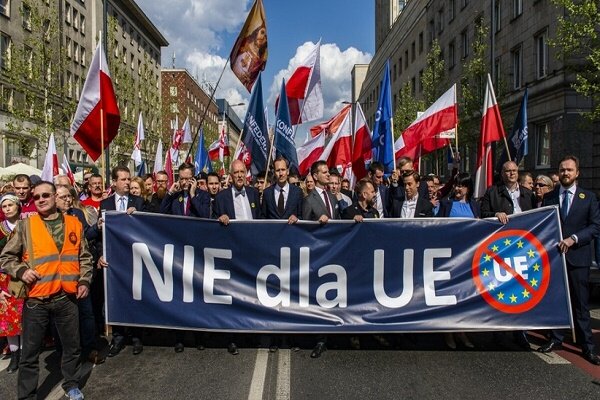Former Ambassador Abdolreza Faraji Raad in an interview with the site of Strategic Council on Foreign Relations continued:” in view of the present tensions between Russia and Ukraine, if Hungarians really wish to exit from the European Union, there will be problems inside the country. Moreover, exiting from the EU will be coupled with high costs for the country, and for a country like Hungary that has few resources, paying such a price will be impossible”.
The expert on geopolitics commented on the perspective of the tensions and said:” if an election is held in Hungary and another government takes office, situations may change and there is a possibility that Brussels remits the penalties approved for the country but as long as the present Prime Minister remains in office and threatens the EU, pressures will continue”.
Having continued to comment on the reasons of disputes between Hungary and the EU, Faraji Raad pointed out to the process of membership of countries in the Union and said:” any country that wishes to become a member to the Union should ratify 31 chapters of the rules and regulations of the EU; that means to coordinate its country with the rules and regulations of the European Union. Hungary and Poland applied for membership in the Union after the Soviet Union breakaway and they attained relative independence, and tried to complete 31 chapters under the supervision of the EU experts and become full member of the Union afterwards”.
According to the expert, one of the important Chapters is to respect the Common Foreign Policy. In the meantime, there is emphasis on human rights and democracy”.
He added:” this is the case that after the outbreak of Arab Spring, the exodus of migrants to Europe and some terrorist activities took place, some of the Eastern countries bloc such as Hungary and Poland did not deal with migrants and refugees like other EU countries, instead they dealt with them very tough and violently”.
Faragi Raad underscored that the measure taken by Hungary and Poland proceeded to the level that the EU issued warnings to the heads of their governments where the rightists take office, but the warnings received cold shoulder. They not only did not let migrants enter into their countries but also did not let them pass through their territories to enter Germany and or other countries of Northern Europe.
The expert on geopolitics continued to refer to the point that based on the aforementioned reasons, Hungary and Poland were due to be taken to European Court and pay penalties. He explained:” ever since the Brexit was definite Brussels appeased the two countries until the Britain’s exit is sorted out”.
He also said:” as Brexit took place during Donald Trump’s Presidency, he as well as some of the British authorities were not unwilling that some of the Eastern European countries (follow the same pursuit and) exit from the European Union”.
According to the expert, after the Brexit process was concluded, the dossier of the two countries was sent to the Court and they were sentenced; but they appealed again. When the Court met again, they were sentenced to pay 37 billion Euro”.
He continued:” after the fine was specified, Hungary and Poland declared that in case the process continues, they would leave from the European Union”.
Having said that the two countries tune, to a large extent, their own ideas in foreign policy, the expert on geopolitics said:” we witness that the Polish have openly approached the U.S. and the U.K. and they almost ignore the EU policies. Hungary has also approached Russia amid this. The very same issue has caused the emergence of tensions between the country and Brussels”.
Faraji Raad also pointed out to the issue that the EU is not very happy with the behavior of Eastern European countries, particularly in the aftermath of 1+16 Treaty between the Central and Eastern European (CEE) countries and China. However, Brussels does not focus too much attention to the issue to prevent disunity in the EU”.










0 Comments